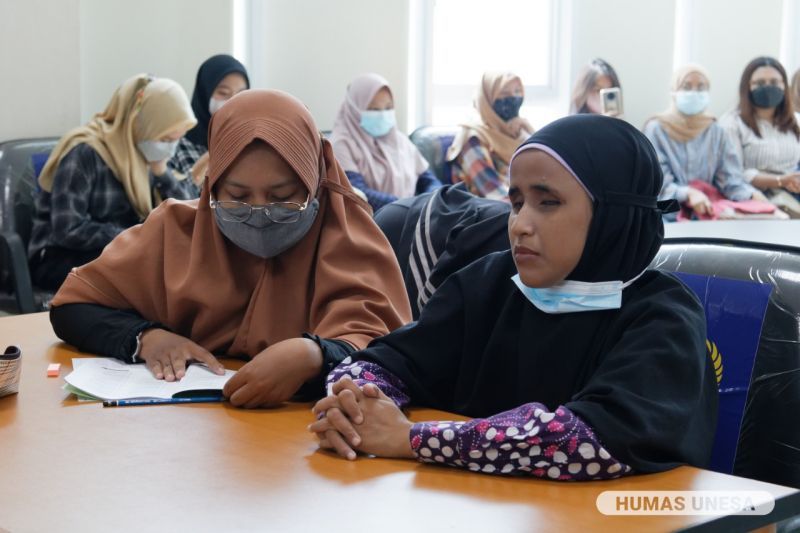
www.unesa.ac.id
Unesa.ac.id, SURABAYA – The UNESA Center for Disability Studies and Services (PSLD) in collaboration with the UNESA Language Center UPT held a Test of English Proficiency (TEP) for UNESA disabled students on Tuesday (9/11/2021) on the 9th Floor of the UNESA Rectorate Building, Lidah Wetan Campus. The test was followed by 15 participants. They are accompanied by companions.
Prof. Dr. Budiyanto, M.Pd., said that the test is part of the student's graduation requirements. So far, students with disabilities who want to carry out TEP sometimes experience mobility problems. The cooperation in administering the test is intended to provide maximum service to students with disabilities who take part in TEP. "When together with other students, the service can't focus," he said.
It is also said that the test takers are people with disabilities with various obstacles, ranging from visual, hearing, and autism barriers. According to him, every student with a disability requires different treatment. "The visual impairment is not really a problem, because he has good hearing ability, because language is also dominant there," he explained.
He hopes that the test can provide maximum results and at the same time can be used as evaluation material in the future. The results of the evaluation will be examined for shortcomings, so that it becomes material for improvement. "Hearing about the problem here, autism is the problem here, we are looking for a solution, how in a technical context it can be solved," he added.
Drs. Suwarno Imam Samsul, M.Pd. as the Chairperson of the UNESA Language Center UPT revealed that students with disabilities have the right to be served optimally according to their respective needs and obstacles, especially in the implementation of TEP. He was grateful for the advice and support provided by PSLD in the preparation of tests for students with disabilities. "Of course, they also have rights that we cannot ignore. They must receive services, because TEP is an obligation, so we must provide services according to the treatment that should be given," he concluded. (UNESA PR)
Reporter: Hasna
Editor: @zam*
Share It On:






